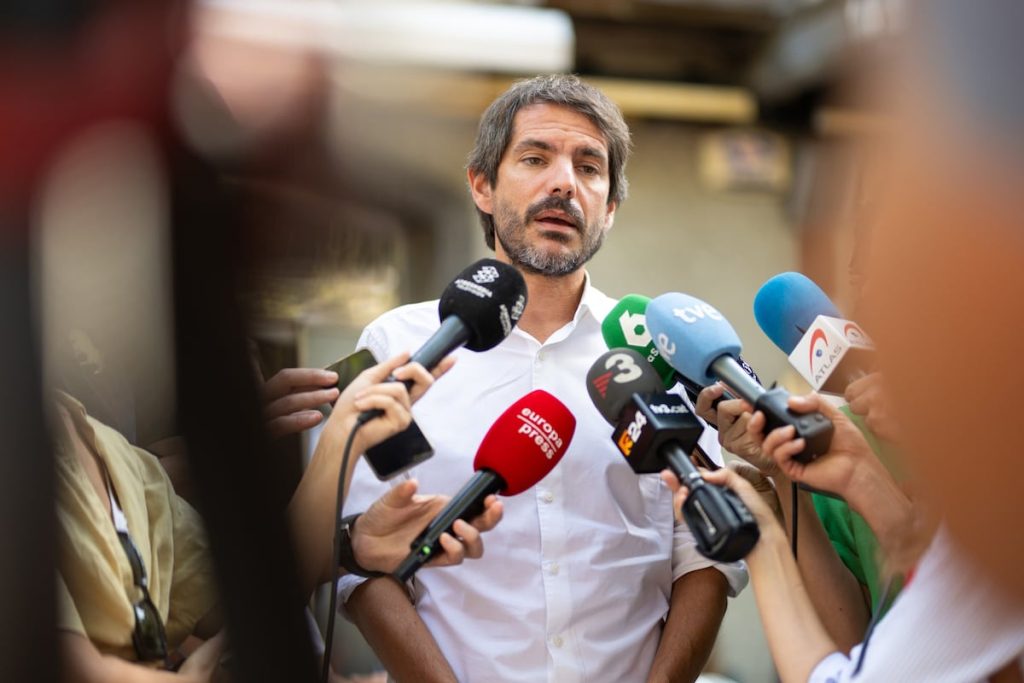The hardening of the migration discourse that has characterized the beginning of the political season has elicited responses from both sides of the coalition government. Both the Minister of Culture, Ernest Urtasun (Sumar), and the Minister of Defense, Margarita Robles (PSOE), reacted on Friday to the accusations exchanged between the PP and PSOE during President Pedro Sánchez’s tour of Africa. Robles criticized the opposition, accusing the Popular Party of trying to capitalize on the migration debate, while also urging them to approach the issue with a sense of national interest. Urtasun, on the other hand, criticized Sánchez’s change in tone throughout the week, cautioning against falling into the trap of pro-deportation rhetoric advocated by the right.
Since Sánchez opened the door to exploring alternative avenues for legal migration upon his arrival in Mauritania on Tuesday, the migration debate has taken center stage. The PP, through its spokesperson in Congress, Miguel Tellado, has accused the government of promoting the massive arrival of migrants by clashing with the debate on mass deportations that has been opened in other European countries, such as Germany recently. Tellado reiterated his position on Friday, stating that the deportation debate is relevant in Spain and accusing the government of not controlling the borders or not being serious about its migration policy.
In response to the intensification of the migration debate, the difference between the reactions of Robles and Urtasun carries significant nuances. The minister from the majority party of the government, Robles (PSOE), directed her criticism towards the opposition, urging them to approach a topic that transcends Spain with a sense of national interest and has implications for the entire European Union. She deemed it “unacceptable” that the PP is trying to capitalize on a topic with “humanitarian, economic, or counter-terrorism implications,” reminding her rivals that “anything goes.” She called on the PP to demonstrate the sense of national interest that they seem to lack in the immigration issue.
Meanwhile, Urtasun (Sumar) has taken on a distinctive stance for the smaller party in the coalition government by urging the government to not fall into the trap of right-wing and far-right rhetoric that favors deportations and returns as a solution to the “complex” migration phenomenon. He referred to the change in tone exhibited by Sánchez in Senegal, halfway through his tour of Africa, where the president stated that security is “paramount” and the return of those who have arrived in Spain irregularly is “essential” to send a “deterrent” message to the smugglers. Urtasun interpreted this change in discourse as a capitulation to criticisms received by the president, thus asserting his party’s distinctive stance on the issue.
This shift in discourse has been viewed by Urtasun as a concession to the criticisms faced by the president, prompting him to assert his party’s independent stance on the issue. “We will not allow the failed, demagogic, and human rights violations proposed by the right and far-right to dominate public debate. We advocate for a progressive policy focused on human rights in migration that makes it clear that there are individuals in this country who work and deserve to be regularized and have citizenship rights.” In conclusion, the migration debate has become a polarizing issue within the coalition government, with differing perspectives on how to address the complex challenges posed by migration flows.


